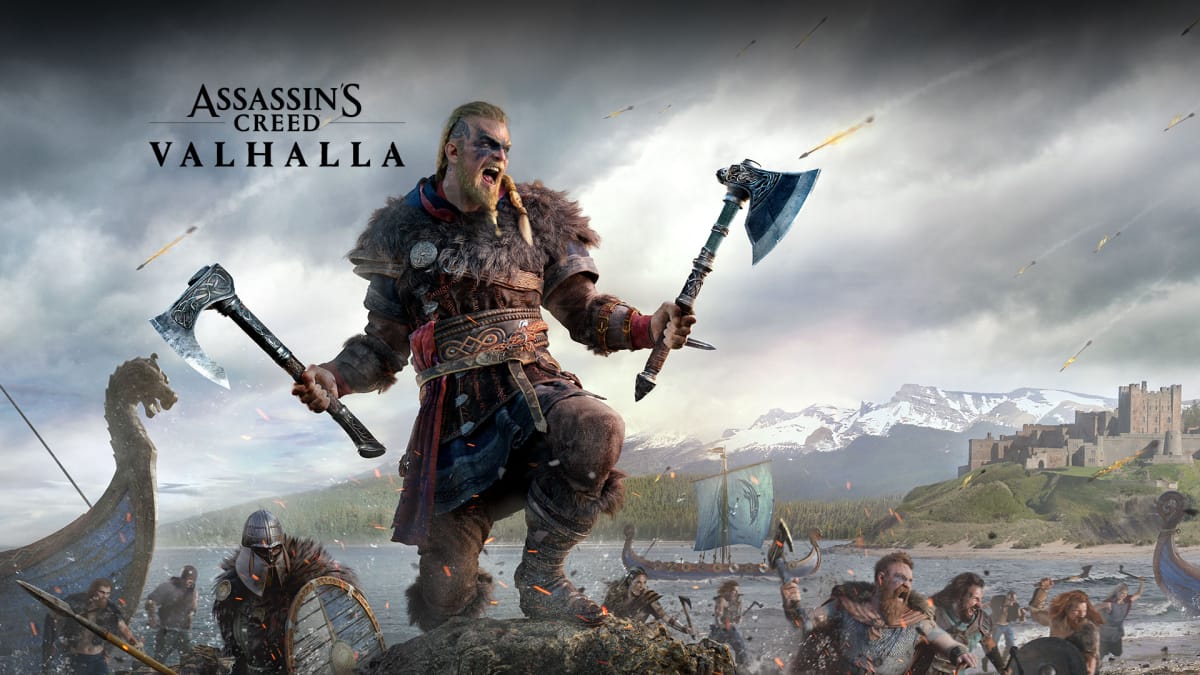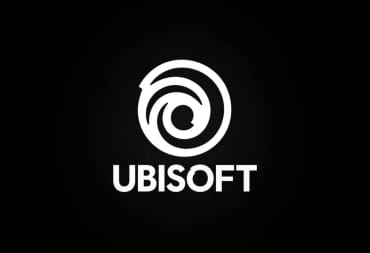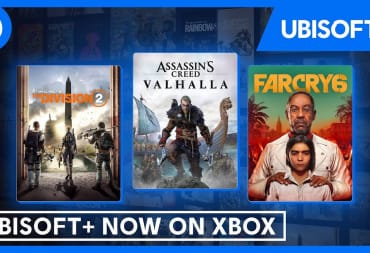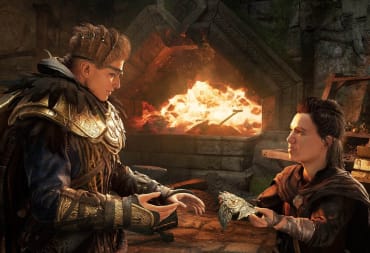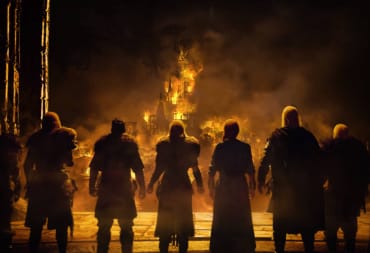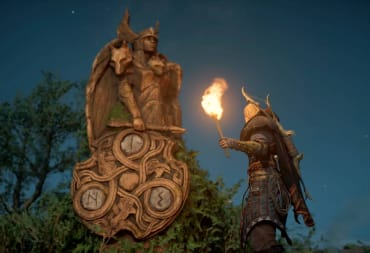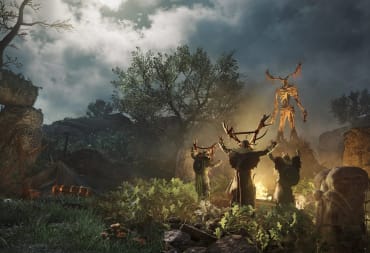When Assassin's Creed Origins dropped in 2017, many, such as myself, applauded Ubisoft's total reinvention of the franchise and felt the series come back from the brink of irrelevancy. Older fans have fallen on the too oft repeated adage "Sure it's a good game, but it's not a good Assassin's Creed game." Assassin's Creed Valhalla is a showcase of lessons learned from Origins and Odyssey, streamlining the game loops, map layout and systems in a way that finally feels more like an organic adventure rather than a never-ending checklist.
If you are one of the fans that doesn't appreciate the franchise's 180 into an open world action-adventure RPG, Valhalla is not likely to change your mind. However, Ubisoft has plainly taken the time to learn what does and does not work about their arguably overused open world formula and have brought the best they have to offer to Valhalla.
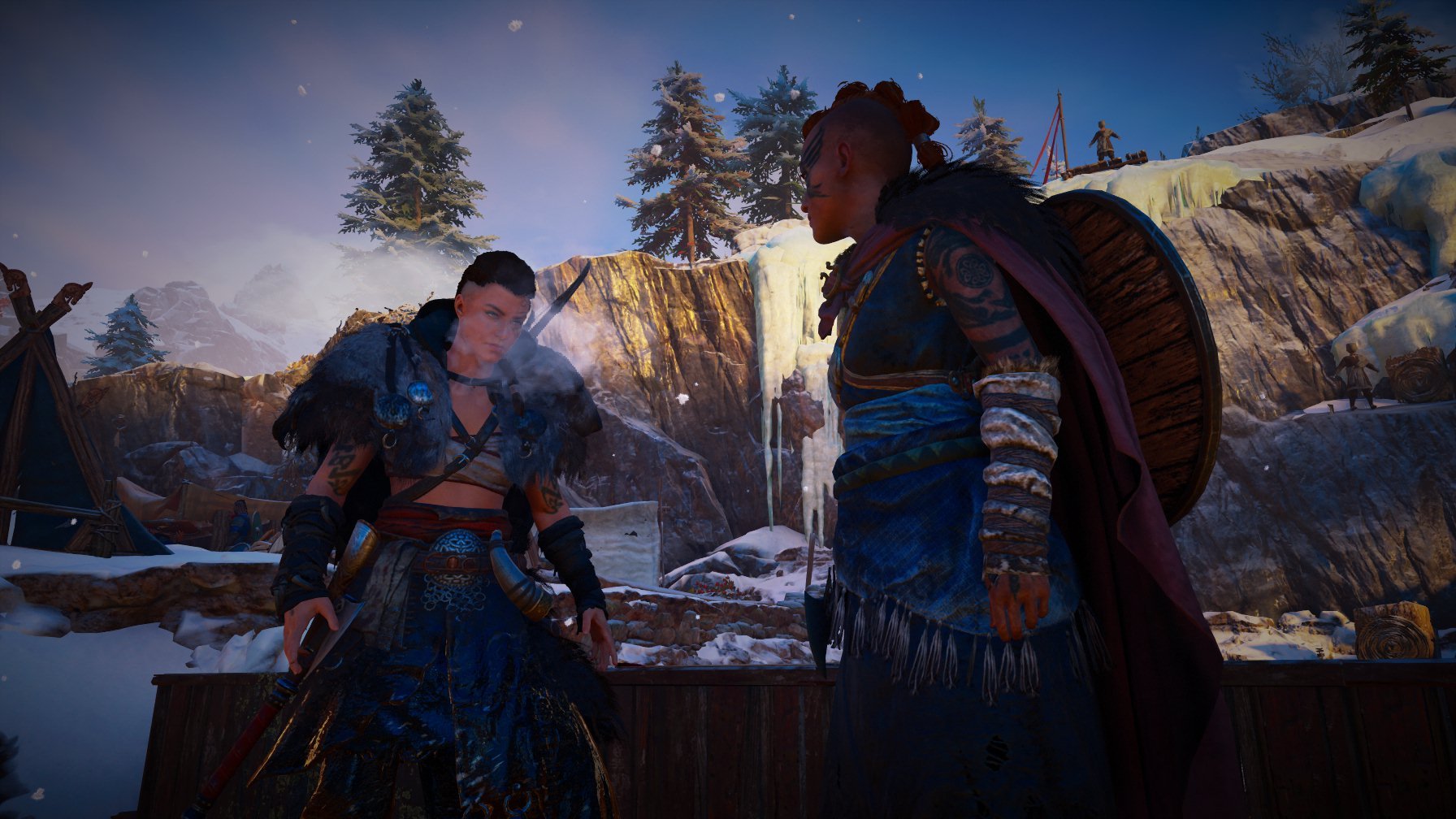
An Intriguing Premise
Assassin's Creed Valhalla drops the player into the shoes of Eivor, a Norwegian viking in 873 AD. After a "20 years ago" framing cutscene, the player will choose to play Eivor as either male, female or the "default" method. The Default that Ubisoft suggests strikes me as odd, physically transforming the player between a male and female version of the same character for each portion of the game depending on which memory the Animus found stronger. I elected to play as female Eivor, though I did play as the male version for an hour or so to observe the voice performance. Both voice actors, Magnus Bruun and Cecilie Stenspil, do excellent work and play the character their own way. Brunn's male version comes across much more calculated and pondering, while Stenspil's female version comes across as more brash and prone to action.
After her parents were killed at a young age, Eivor was adopted by King Styrbjorn and taken in to be raised as his own. She grew up with her adoptive brother Sigurd, and has come into her own as a viking warrior when the story begins. After a few hours spent in the small open world Norway map, Sigurd, Eivor and their band of settlers set sail for greener pastures in England to find a new home. Upon arriving, they construct a new town out of an abandoned settlement and christen it Ravensthorpe, after the Raven sigil that waves above their longboats. Eivor's job is soon established; travel the four Kingoms that make up England to forge alliances, whether through diplomacy or war. Valhalla is less about conquering land and more about raiding it, which seems quite in line with the viking philosophy.
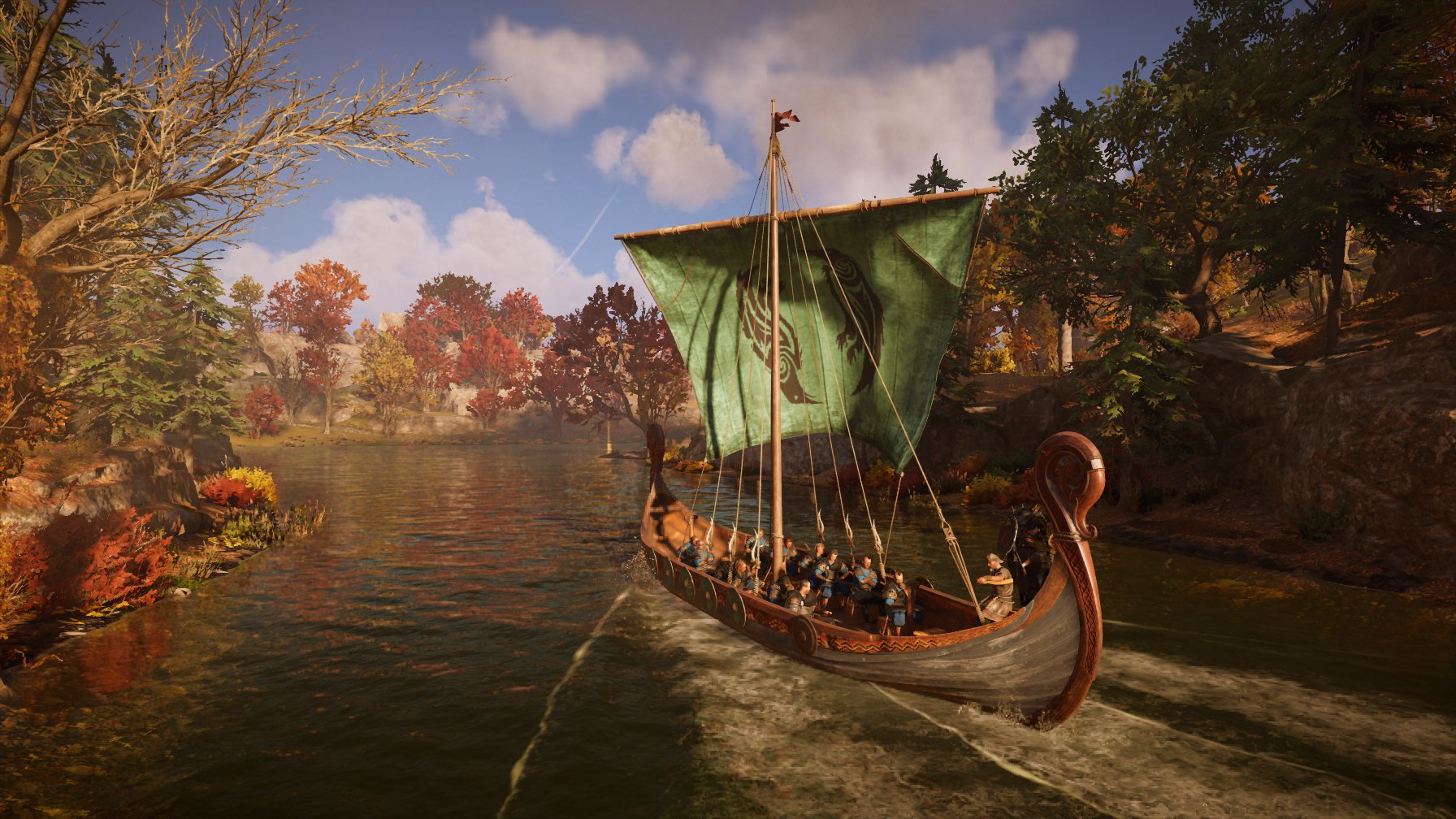
A Home to Call Your Own
Ravensthorpe sits in the center of the large map of England, and will serve as the hub area during your viking adventure. The town wasn't quite as customizable as I liked - there are predetermined spots for where each building goes, and it's up to Eivor to lead raids into English territory to gather supplies to build them. There are predetermined spots for art pieces and miscellaneous structures as well to give it an air of personalization, but everyone's Ravensthorpe will end up looking largely the same. Still, it's nice to have a place to go back to after a long raid and pass out into a fur-lined bed.
As you form new alliances and explore the map, new citizens will move in and bring their skills and trades with them. With all its thematic centering on "making home wherever you go," Assassin's Creed Valhalla delivers on allowing the player to build a cozy hamlet with traders, blacksmiths, bounties, tattoo artists and more accessible at a moment's notice. No more running to the nearest town and trying to hunt down a generic blacksmith with your eagle - you know exactly where and who the blacksmith is! It's Gunnar, the zany old smithy Eivor has always known and worked with, and he lives right down the street from you. Your War Room is also located in town, and after securing each alliance you'll report back to your sister-in-law Randvi for your next assignment. As cookie cutter as it is, Ravensthorpe is a showcase of a player home done right. Although I can't mention why, Norse mythology plays a very heavy part in the story - as soon as humanly possible, build the Seer Shop in Ravensthorpe. Thank me later.
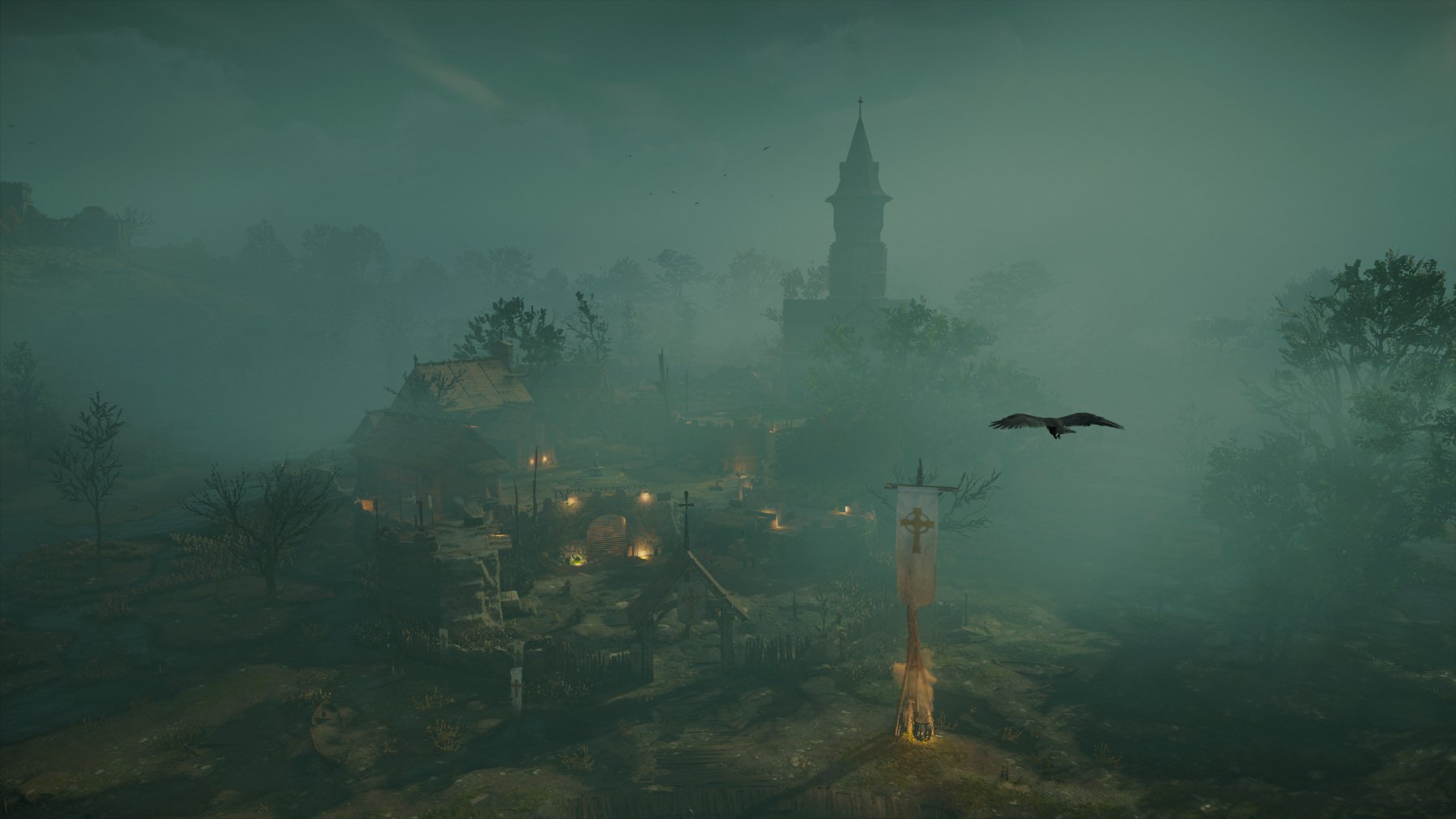
A Natural Adventure
One of my main issues with Assassin's Creed Origins and Odyssey were that the first ten hours felt like a masterpiece; the subsequent 30 began to feel like I was filling out checklists as busywork. I'm thrilled to report that Ubisoft has taken a step back to assess why people play their games. The map is undoubtedly the best one yet, spacing things apart where they would naturally be placed. No more ham-fisted attempt to stick some point of interest in every 50 meters that we've grown accustomed to in Assassin's Creed. While the total land mass may be larger than Odyssey, there are less locations to discover, making each one feel more significant. Locations are denser and are all concentrated on the rivers, so happening upon a new location while gliding along in the longboat feels natural and exciting.
I know the Assassin's Creed series is one of the most beloved in the world, so I do not say this lightly: Assassin's Creed Valhalla boasts the best score in the series to date.
There is something about walking into a bandit camp and seeing "0/2 LEADERS KILLED | 0/3 STORES DESTROYED | 0/12 DOCUMENTS COLLECTED" that makes me groan and slump my shoulders. Valhalla throws these checklists to the wayside in favor of letting the player figure out what all they need to do in each location.Walking into a camp, settlement, monastery or city for a good ole fashioned viking raid feels real and earned. You set out from Ravensthorpe in your longboat with 20 born-and-bred warriors, itching to dig their axes into the first misguided Englishmen to stand in their way. You blow the war horn, signaling the camp that they are being invaded, and set off to loot whatever riches, clues and raw materials you happen to find. Your eagle, Synen, can help point to general locations of interest, but I preferred to search each building and basement as if I were really conducting a viking raid.
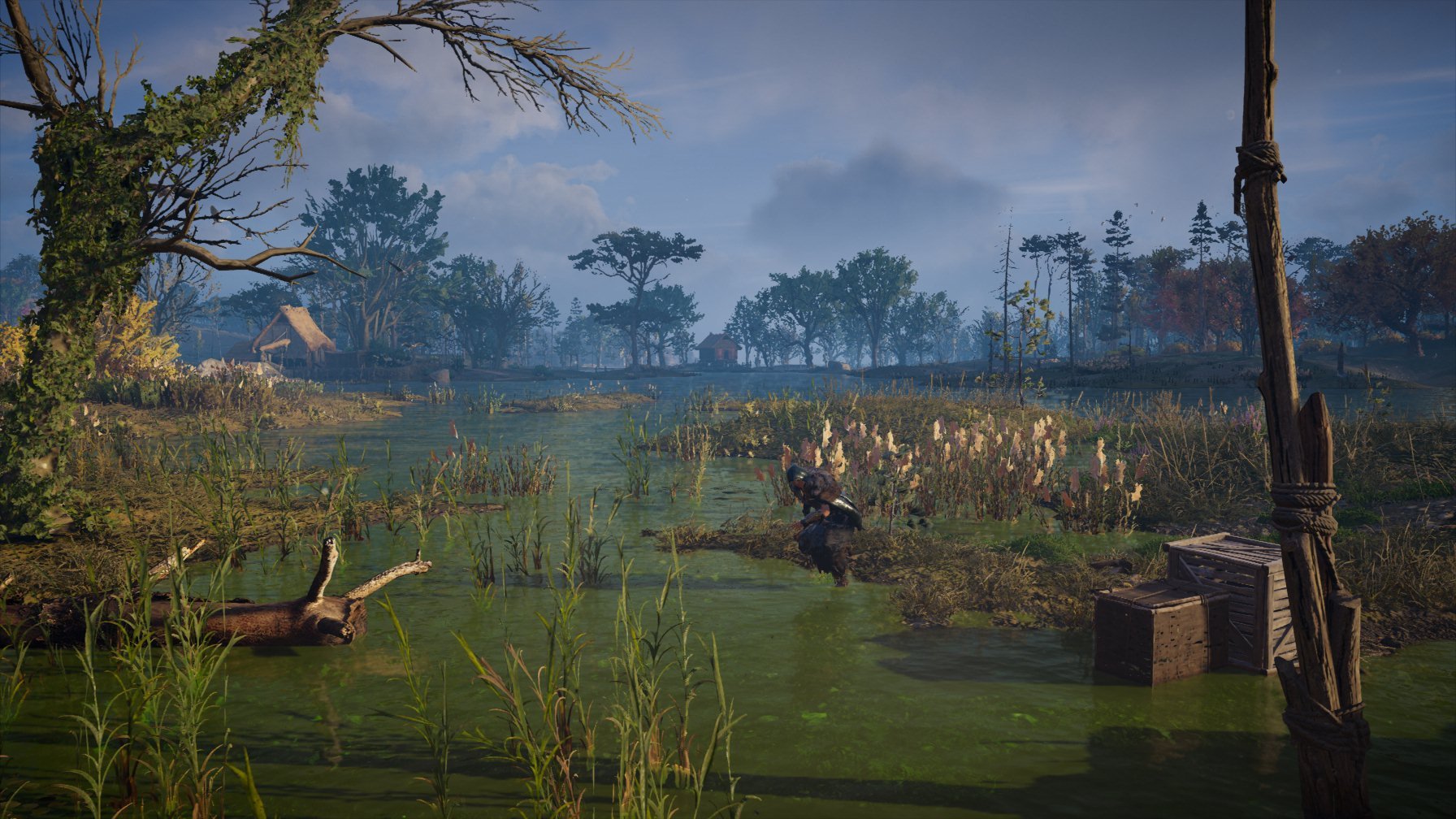
Streamlined Combat and RPG Mechanics
Another qualm I had with Origins and Odyssey was that the menus were too complicated and often full of bloat - in an RPG, you'll be spending more than a few minutes in the menus. Having an aesthetically pleasing and intuitive interface is key. Fortunately, Valhalla has streamlined skills, abilities and gear to get you out of the menus and back into the world as quickly as possible. Abilities are gained through rune tomes and are somewhat related to how they're acquired, giving the player the feel of actually working to improve their skills.
I appreciated that the ability icons on the screen take up much less room now and only show up when needed, and with adrenaline being much harder to attain than in Odyssey you have to make your ability attacks count. Combat is better than it's ever been, with the focus being on perfectly-timed parries with the shield followed by perfectly executed attack patterns. No more hacking and slashing - the timing, slow-mo animations and blow back of the parry mechanics make Assassin's Creed Valhalla feel more like a Platinum Games offering. While the parry mechanics work excellently, the simple act of swinging an axe is still quite clunky. Eivor will frequently strike an inch or two away from your intended target, but this can be dealt with by keeping locked on to targets. The AI is also quite buggy and unpredictable - enemies would frequently fly into the air or through solid objects and sometimes end up attacking plain air. The bow and arrow unfortunately feels just as bad to use as it did in Origins and Odyssey.
No more hacking and slashing - the timing, slow-mo animations and blow back of the parry mechanics make Assassin's Creed Valhalla feel more like a Platinum Games offering.
Skill points are allotted frequently when completing small tasks and spent in a Skyrim-like constellation map of potential stat buffs. Skill points are mostly spent on small improvements like " +2.6% Attack", again reminiscent of Skyrim. I was a fan of this arrangement; getting stronger every single time I completed a quest, even incrementally, felt just as rewarding as silver. The gear menus have been cleaned up, and Eivor can equip whatever configuration of dual-wielding weapons, shields or bows that she prefers. Spell-filled runes can be used to enchant these weapons for special effects and upgraded power. Right, right, we get it Ubisoft. You guys played Skyrim. Still, Valhalla steps into its own with intense, character-driven narratives and a tightly controlled atmosphere.
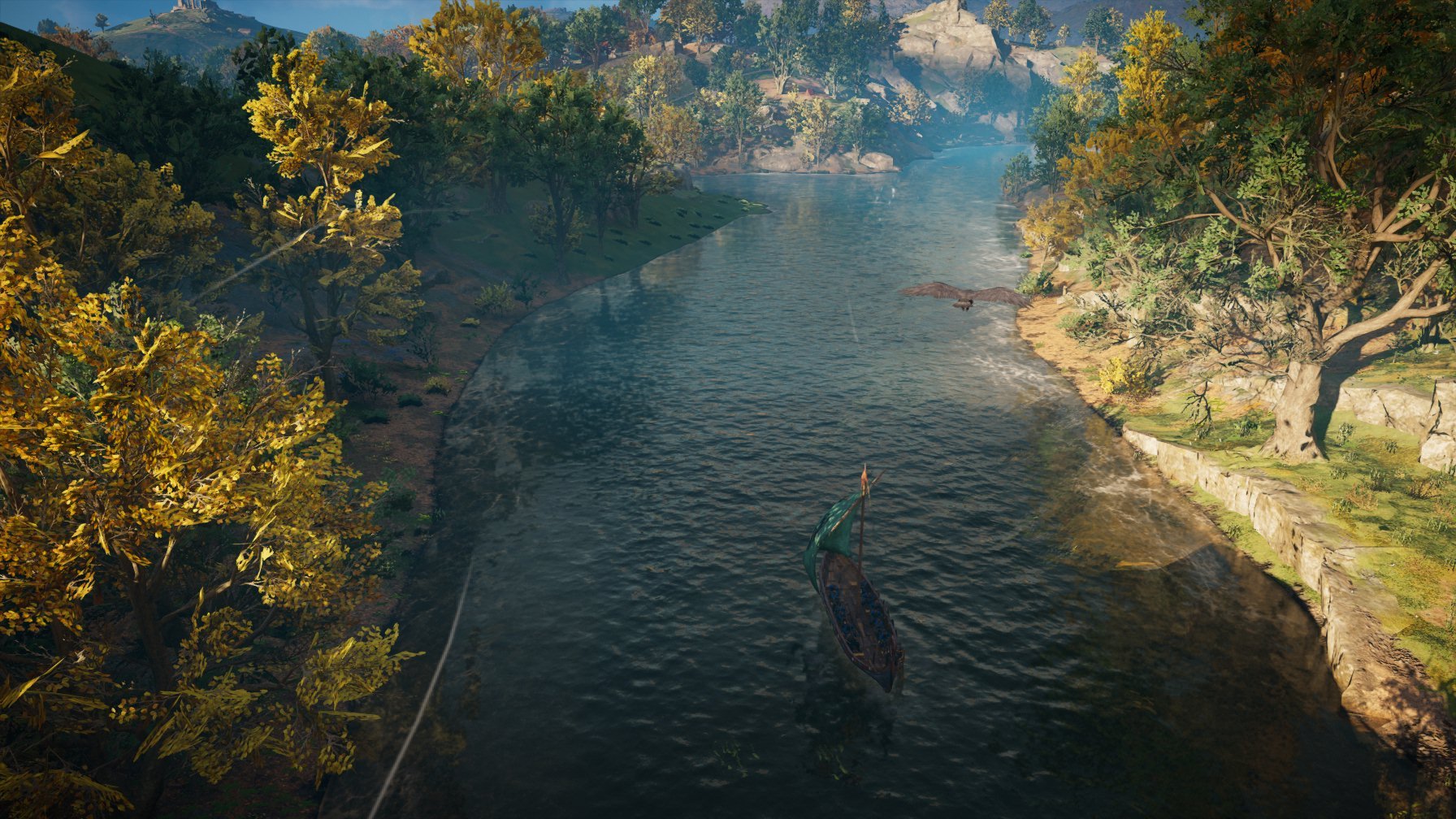
Modernized Investigations and Choices
I have long spoken ill of The Witcher 3's approach to investigating - use your Witcher sense, press A on the red thing, Geralt says "oh yeah, this is definitely bulbobox blood. They live in the eastern region of this forest." Rinse and repeat until you get the full picture. Origins and Odyssey employed an even more arduous version of this mechanic, but Valhalla strips it away completely. When entering an area to investigate, Eivor will either quickly make observations about the scene with no input or be given information by an NPC in a dynamic conversation. Solving mysteries actually felt more natural without rhythmically tapping the A button and waiting for Eivor to finish talking; you collect clues from the environment automatically and piece together what they mean in dialogue with NPCs.
Throughout Assassin's Creed Valhalla, you'll be making difficult decisions on which places to form alliances with and which ones to destroy. Do you do what's best for your people, or what's morally right? There are multiple endings to Valhalla, so choose carefully. Many conversations have multiple outcomes, but they all feel a bit more naturally cadenced than the ones in Odyssey. Valhalla definitely nails the feeling of being a viking, but it's difficult to morally defend what you're doing most of the time. Eivor and her crew have no qualms bellowing into an unsuspecting Monastery, killing the guards, and taking everything they have. Are we the baddies? Yes, we pretty definitively are. But that's what you sign up for with vikings, isn't it?
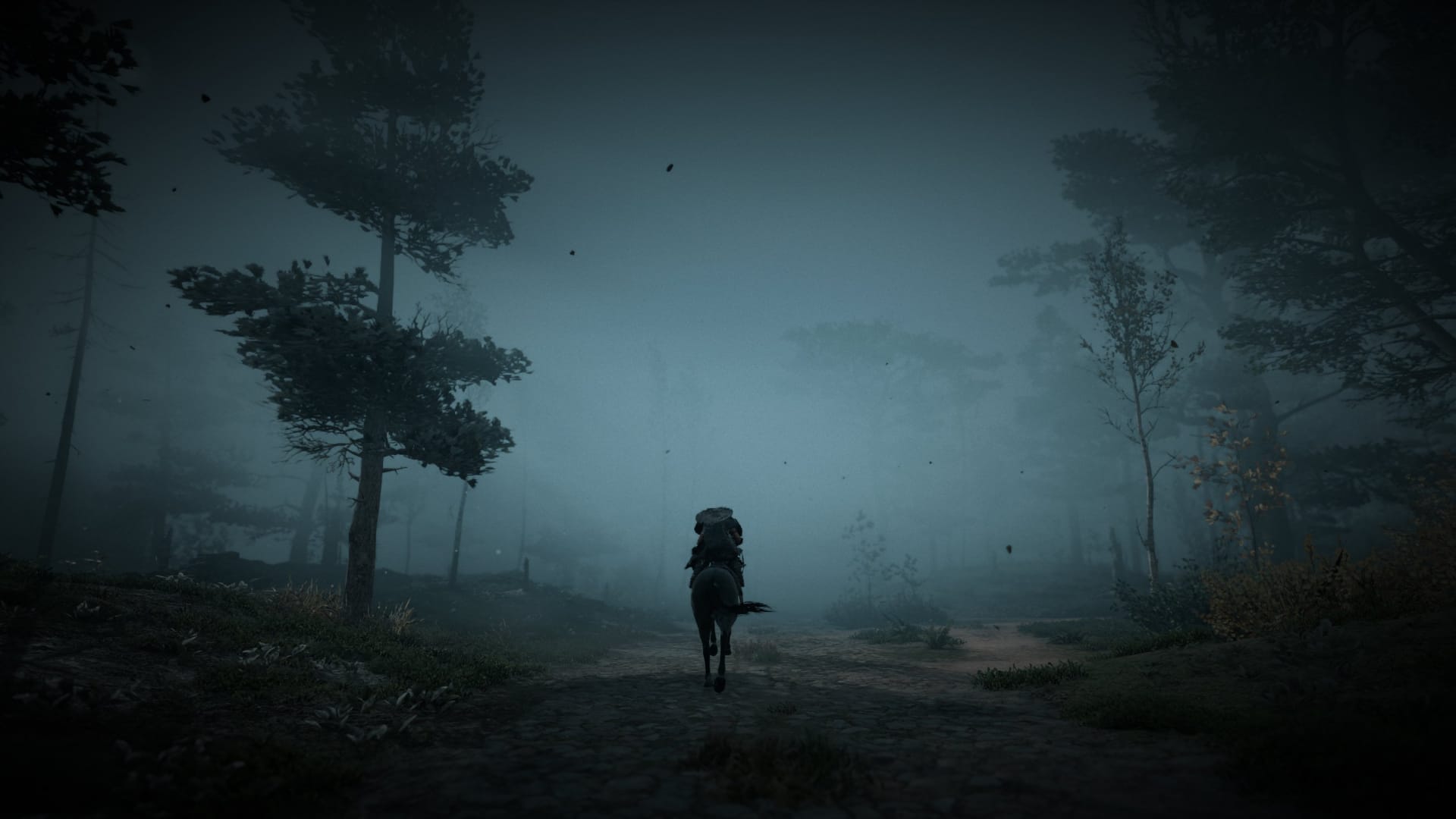
The Best Soundtrack to Date
I know the Assassin's Creed series is one of the most beloved in the world, so I do not say this lightly: Assassin's Creed Valhalla boasts the best score in the series to date. Equally enchanting are the viking sea shanties chanted on the longboat, the Norse horn soundscapes that punctuate the thrill of exploration and the poignant twang of strings as Eivor uncovers new mysteries. All of the music is steeped in Norse roots, but composers Jesper Kyd (Assassin's Creed II, Borderlands), Sarah Schachner (Call of Duty: Modern Warfare), and Einar Selvik (drummer of the Norwegian black metal band Gorgoroth) bring their disparate backgrounds together to create something entirely new.
Pounding Norse war drums, EDM synths, drum machines, flutes and plucked strings ebb and flow with reckless abandon. The call and response of Eivor singing along with her crew on long voyages builds the feelings of comradery, honed in on that viking theme of brotherhood. I found the sounds of mystery and exploration to be highly reminiscent of Inon Zur's iconic Fallout 4 score, a humming minor chord always insisting there was something else to be discovered. Assassin's Creed Valhalla is home to one of the best soundtracks of the year, and that's saying something with Ghost of Tsushima and Hades on the table.
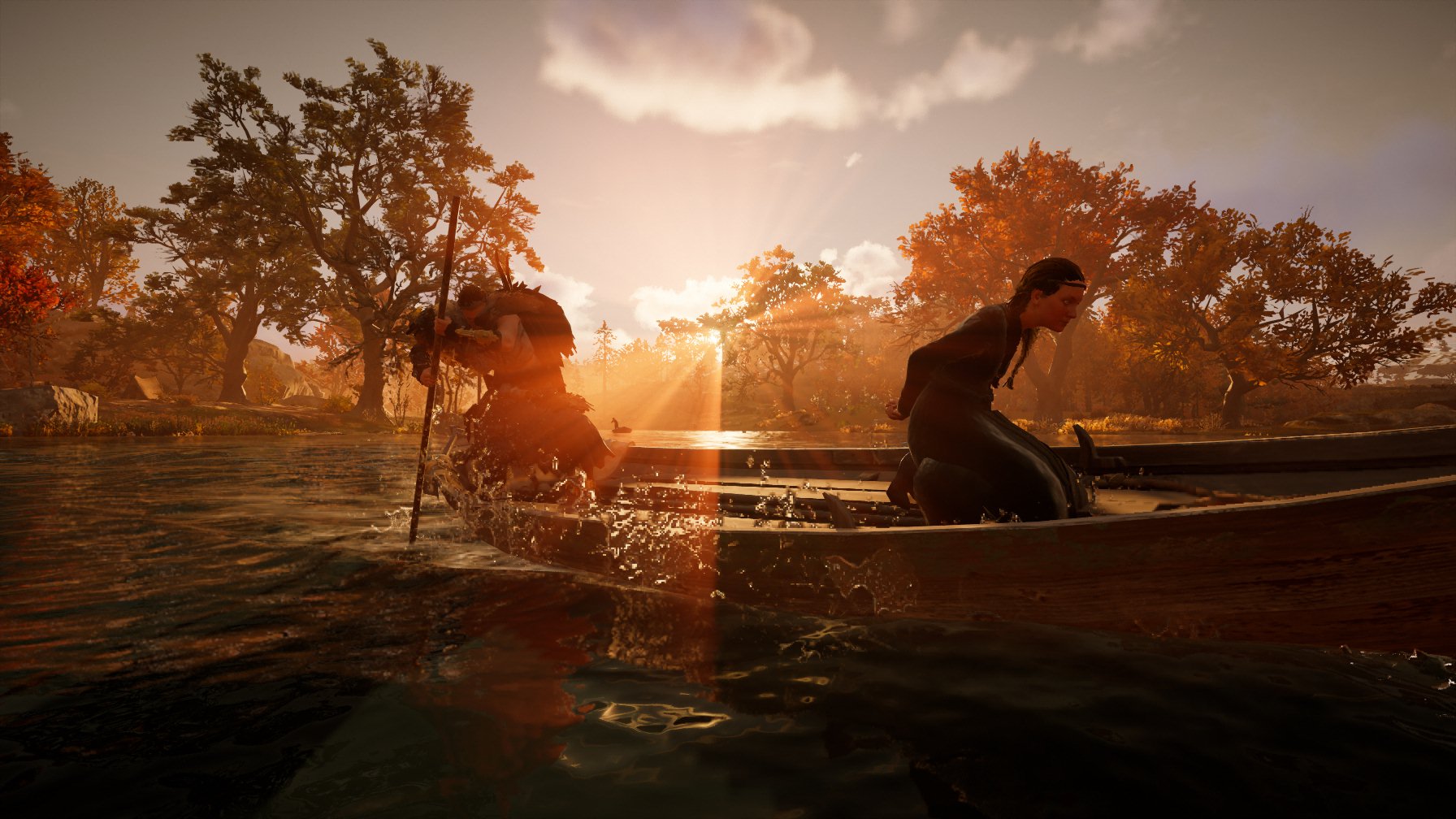
The Natural Culmination of the Ubisoft Formula
I also need to state the sheer avalanche of minor bugs found in Assassins Creed Valhalla - I wonder if Skyrim perhaps had a bit too much influence. I had four separate crashes to desktop that seemed unprompted by anything, dozens of NPCs walking into walls or into the water instead of on a path, and hundreds of enemies that simple passed through an object here or there. My save file once became corrupted when I took a picture with photo mode, and I lost a few minutes of progress. The bugs didn't detract too much from my enjoyment of the overall product, but it was impossible to ignore how irrationally the NPC movement and pathing consistently behaved.
The graphics were nice, but don't seem to have improved from Odyssey (which is a pretty gorgeous game). Discounting the bugs, Valhalla ran quite smoothly but became very demanding in large fights. For reference, I have a GTX 2060 Super and Ryzen 5 3600 (a little less powerful than a PlayStation 5/Series X), but maintaining 60 fps on High graphics settings prompted more than a few whines from my PC. Ubisoft will have to do some fine-tuning to run it well on last generation consoles.
Valhalla hits almost every note correct and finds a way to hone in on the best elements of its gameplay while downplaying the parts we've grown tired of. The Ancient Order bounties are a replacement for the cult system from Odyssey and are streamlined to feel even easier to pursue. The daily quests return as well, with relatively low prices for some excellent gear. Investigating mysteries is quicker and more rewarding, finding new places feels natural and exciting, and the feeling of going 'a viking is thrilling. I only became more excited to continue playing with each hour that passed - something I can't say about the previous two entries in the series. I recommend all fans of open world RPGs and especially fans of Origins and Odyssey pick up Assassin's Creed Valhalla this fall, especially if you're breaking in a next-generation console.
TechRaptor reviewed Assassin's Creed Valhalla on PC with a code provided by the publisher. Assassin's Creed Valhalla is also available on PlayStation 4, PlayStation 5, Xbox One, Xbox Series X|S, and Google Stadia.
Review Summary
Pros
- Streamlined RPG Mechanics and Gameplay
- Combat is Focused on Perfect Time Parrying That Feels Great
- Building Your Own Town is Fun and Rewarding
- The Best Music in Series History
Cons
- Consistently Plagued With Minor Bugs
Have a tip, or want to point out something we missed? Leave a Comment or e-mail us at tips@techraptor.net
